Faq
Frequently Asked
Questions
Cardiopulmonary Resuscitation (CPR) is a life-saving technique used during cardiac arrest to keep oxygen-rich blood circulating to the brain and other vital organs. It involves chest compressions and rescue breaths to maintain circulation until professional medical help arrives. CPR is crucial because it can double or even triple the chances of survival in cases of sudden cardiac arrest (SCA) by keeping the heart and brain functioning while awaiting emergency responders.
CPR training is essential for everyone, but it is particularly important for:
- Healthcare professionals (nurses, doctors, paramedics, EMTs)
- Teachers and school staff
- Childcare providers and babysitters
- Workplace employees
- Personal trainers and coaches
- Parents and family members of individuals with heart conditions
- Community members who want to be prepared for emergencies
Anyone can take a CPR class, regardless of their background or medical knowledge, as the training is designed to be accessible and easy to follow.
Upon completing a CPR course, participants receive a certification card issued by a recognized organization such as:
- American Heart Association (AHA) – Includes BLS (Basic Life Support) for healthcare providers, Heartsaver CPR/AED, and First Aid
- American Red Cross (ARC) – Includes Adult & Pediatric CPR/AED, Basic Life Support (BLS), and First Aid
- Other Certifications – Depending on the course, you may also receive workplace-specific CPR certifications
These certifications verify that you have received proper training in CPR and AED use.
CPR certifications are typically valid for two years from the date of completion. To stay certified, individuals must take a renewal course before their certification expires. Some organizations may require annual refresher training, so it's important to check with your employer or certification provider for specific requirements.
Most basic CPR and AED courses do not have prerequisites. However, for healthcare provider courses like BLS (Basic Life Support), some prior knowledge of medical terminology and emergency response procedures may be beneficial. Advanced courses, such as ACLS (Advanced Cardiovascular Life Support) and PALS (Pediatric Advanced Life Support), require participants to have an active BLS certification.
The cost of CPR classes varies depending on the type of course, certification provider, and training format. Typical pricing is as follows:
- Basic CPR/AED Course – $50 to $90
- CPR & First Aid Combo – $75 to $130
- BLS for Healthcare Providers – $60 to $120
- Onsite Group Training – Custom pricing based on the number of participants
Discounts may be available for group enrollments, students, or returning participants renewing their certification.
You can register for a CPR class through our website or by calling our office. Simply:
- Visit our schedule and select the course that fits your needs.
- Choose a date, time, and location that works best for you.
- Complete the online registration form and make your payment.
- Receive a confirmation email with class details and any pre-course materials.
For group bookings or onsite training, please contact us directly for scheduling and pricing.
For most CPR classes, participants should bring:
- A valid photo ID
- Proof of your Online Work (if blended)
- A notebook and pen (optional, but useful for notes)
- Comfortable clothing (some hands-on practice may involve kneeling on the floor)
- Any required course materials (if applicable)
- A face mask or shield (for mouth-to-mouth practice, if required)
All necessary training equipment, such as CPR manikins and AEDs, will be provided during the course.
Yes! We offer group and onsite CPR training for businesses, schools, healthcare facilities, fitness centers, and community organizations.
- Corporate & Workplace Training – Ensures employees are CPR-certified in compliance with OSHA standards.
- School & Childcare Provider Training – Meets state requirements for teachers and daycare staff.
- Custom Group Sessions – Can be tailored to your team’s needs and scheduled at your location.
For more information or to request a quote, please contact us directly.
Renewing your CPR certification is easy and ensures you stay up to date with the latest guidelines. Follow these steps:
- Check your certification expiration date. Renewal should be completed before it expires.
- Choose a renewal class. Most courses offer a shorter refresher option if you’re renewing on time.
- Register for a renewal course through our website or by calling our office.
- Attend the class and complete the skills check.
- Receive your updated certification.
Some organizations allow for blended learning (online + in-person skills test) to make the renewal process more convenient.

